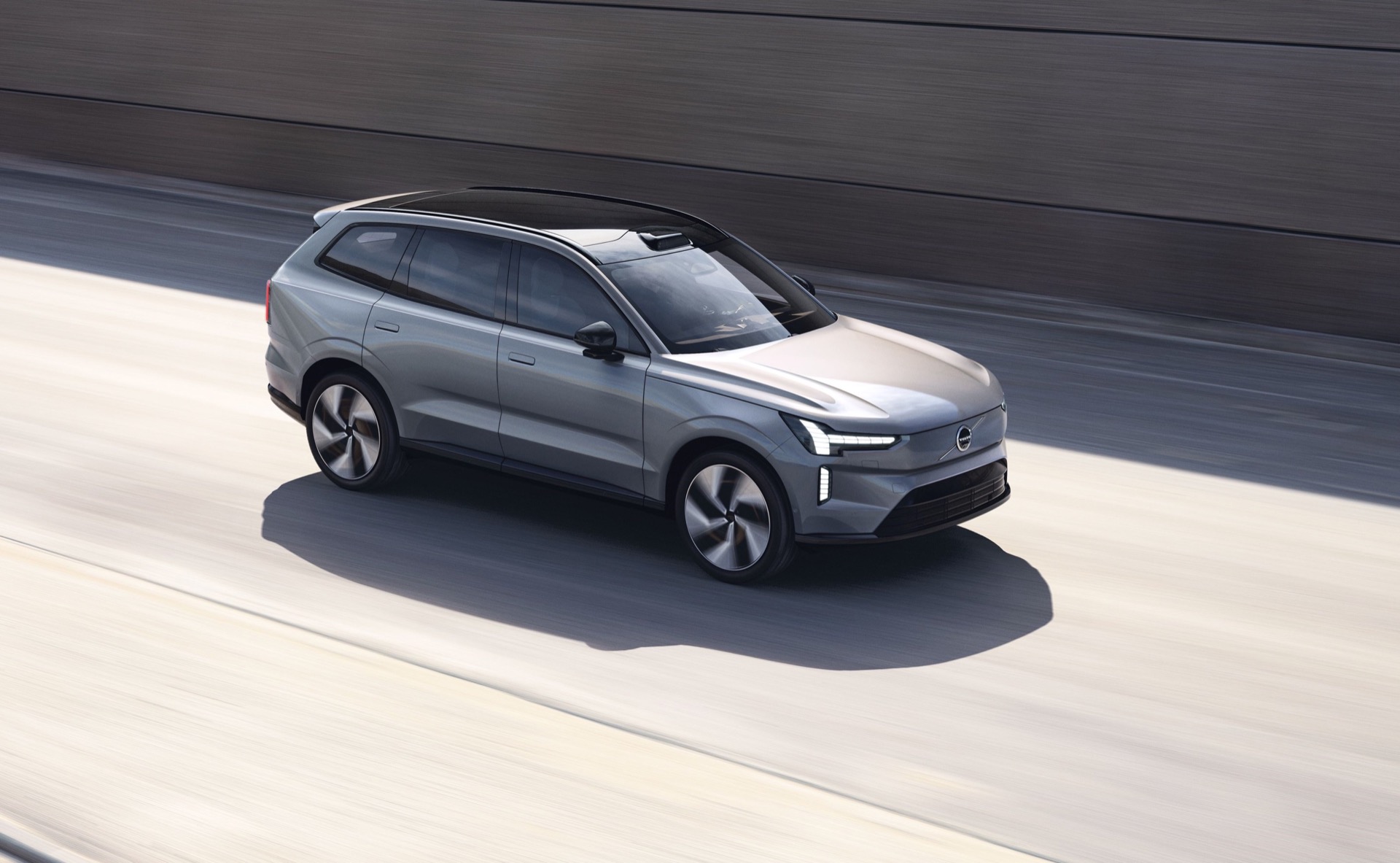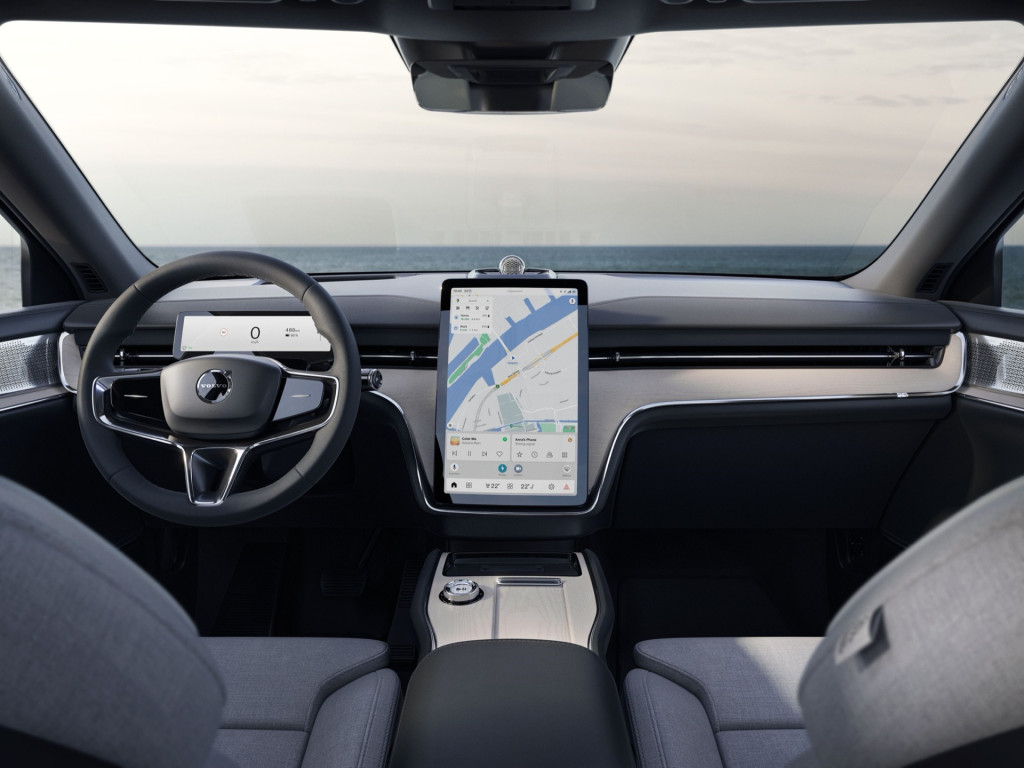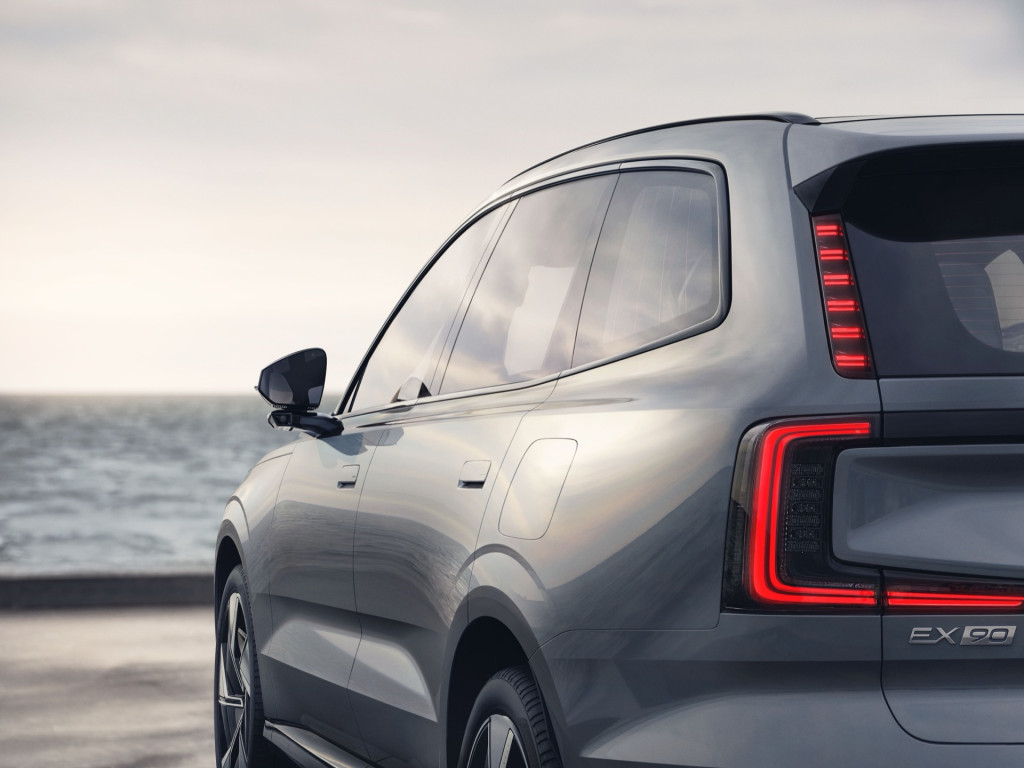

2025 Volvo EX90 launching with battery drain issue
- The three-row electric crossover SUV can lose up to 3% of charge while parked, initially
- Features such as Apple CarPlay and front cross-traffic alerts will activate later with a software update
- Plug & Charge and bidirectional charging initially won’t be available either
Production of the 2025 Volvo EX90 electric SUV started earlier this month in South Carolina, but the first vehicles will be delivered without certain software-based features—and with an unresolved battery-drain issue.
Volvo sent an email to customers, first spotted by a Motor1 reader, stating that vehicles will initially lack Apple CarPlay and some promised safety features, front cross-traffic alerts with forward automatic emergency braking, a feature designed to detect obstacles crossing the vehicle’s path, and functionality for the EX90’s built-in lidar unit.
In addition, while the first vehicles will feature adaptive cruise control and Volvo’s Pilot Assist highway-driving system, they will initially lack a planned feature that automatically reduces speed for curves.

2025 Volvo EX90
Vehicles will also initially use some energy while parked to keep the core computer powered up. Volvo claims this will be less than 3% of battery capacity over 24 hours, and will stop if the vehicle is parked without charging for more than 72 hours. Plug & Charge and bidirectional charging will also be disabled at launch.
The missing features will be added free of charge with future over-the-air updates, which will also add a light theme for the central touchscreen and digital instrument cluster. A Volvo spokesperson added that the requirement to use battery power to run the core computer while parked will also be addressed with a future update.
Unveiled in November 2022, the EX90 was originally scheduled for first deliveries in early 2024, but was held back due to software issues that apparently weren’t completely resolved. Volvo now plans to deliver the first U.S. customer cars in the second half of this year.

2025 Volvo EX90
The same software-related delay also affected the Polestar 3, which is slated to start production alongside the EX90 in South Carolina in August. It’s unclear if the Polestar will also ship with missing features.
The two SUVs share a platform, but the Polestar is a two-row model while the EX90 is sold in three-row form with either a second-row bench or captain’s chairs. Those configurations are priced from $77,990 and $78,490 with destination, respectively, meaning at least some of the lineup will likely land under the $80,000 federal EV tax-credit price cap.
Volvo this week also confirmed that the entry-level 2025 EX30 will be delayed. Instead of arriving in the U.S. this summer as originally planned, deliveries of the small electric crossover have been delayed to 2025. This will allow Volvo to source vehicles for the U.S. from Ghent, Belgium, rather than China as originally planned—which avoids possible new tariffs on China-made vehicles.
Add a comment Cancel reply
Comments (0)
Related posts


Electric SUVs: Top 6 Models for Family Trips











